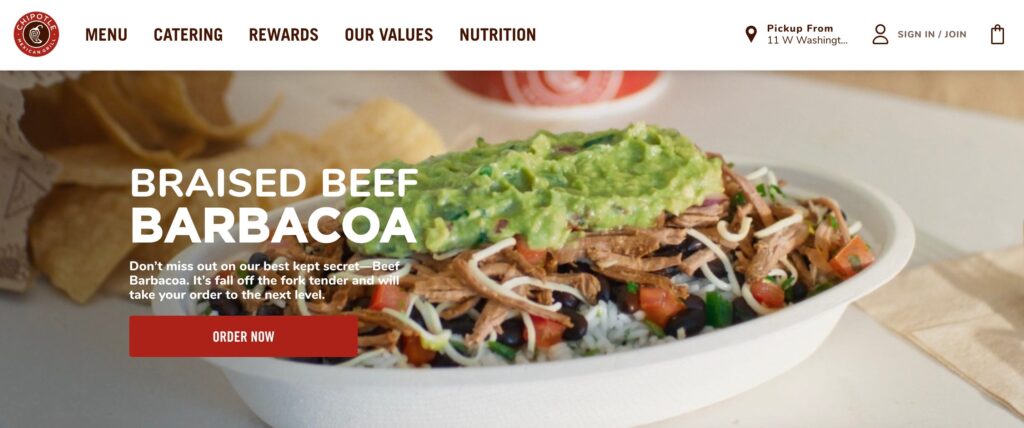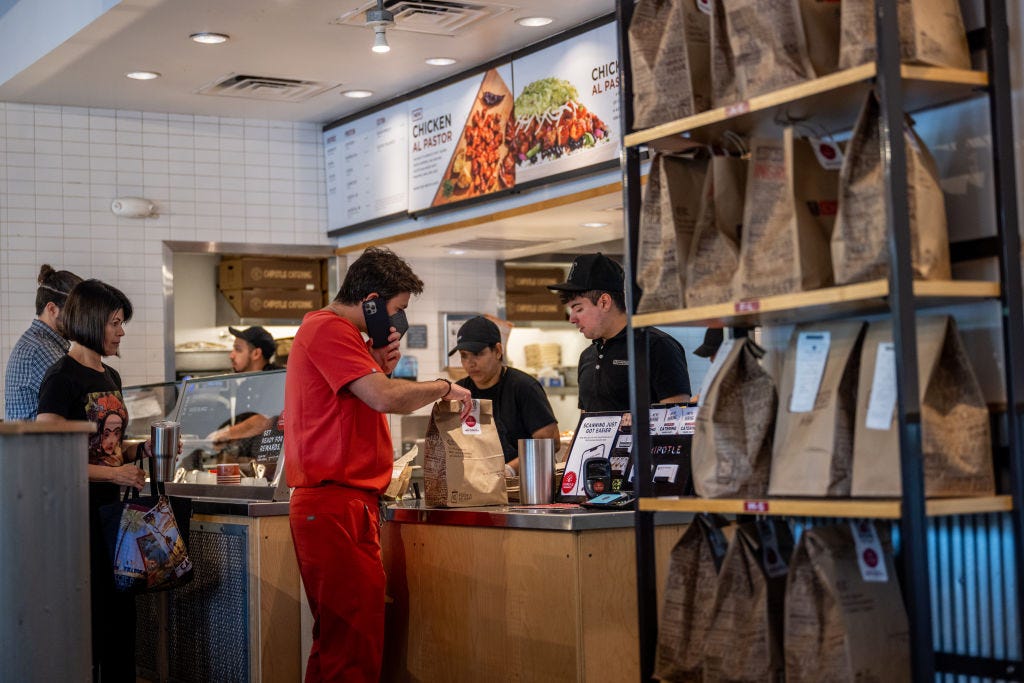- Chipotle renamed its barbacoa filling because customers didn't know what it was.
- It has now been renamed "braised beef barbacoa," its CEO said.
- Barbacoa is a method of cooking meat that's used in Mexico.
Chipotle's CEO said it had to rename its barbacoa burrito filling because diners weren't sure what it was.
"Many of our guests did not know that barbacoa was braised beef," CEO Brian Niccol told analysts at the company's first-quarter earnings call on Monday. "So we renamed it braised beef barbacoa."
The item, which is labeled on its US menu as "beef barbacoa" and in its ads as "braised beef barbacoa," is available as a filling for burritos, burrito bowls, salad bowls, tacos, and quesadillas.
Chipotle's website describes it as "braised for hours, then shredded." It's flavored with herbs and spices, including black pepper, chipotle chili, cloves, cumin, garlic, and oregano.
Barbacoa is a method of cooking meat that is thought to have originated in the Caribbean but has since evolved in Mexico.
Per Delish, it generally refers to meat slowly cooked over an open fire or in a fire pit. The meat is placed on a grill over a pot filled with a liquid and then covered with a lid — "while the meat roasts, it's steamed and braised by its own juices," Delish writes.
Niccol said Chipotle had been "spotlighting" barbacoa by highlighting it in marketing during the quarter.
"It was Chipotle's best-kept secret and is now growing in popularity," he said. "The campaign was a success, driving incremental transactions and spend, and it was simple for our operations team to execute since it was an existing menu item."

Prices vary by location, but at a Chipotle in Manhattan a beef barbacoa burrito with no extras costs $13.35, compared to $11.60 for chicken.
During Wednesday's call, Niccol also spoke about the success of the chain's Chicken al Pastor, which has returned to the menu for a limited time.
Chipotle execs said last year that it was easy to launch because it's made using its existing adobo chicken and that its popularity meant that the company was having to buy less costly beef.
Chipotle posted a 7% increase in comparable restaurant sales in the first quarter and a 14.1% jump in revenues to $2.7 billion. Niccol said that the chain's Californian restaurants had increased prices by about 6% to 7% to absorb the state's new $20-an-hour minimum wage for fast-food workers.
Is fast food getting too expensive? Email this reporter at [email protected].

